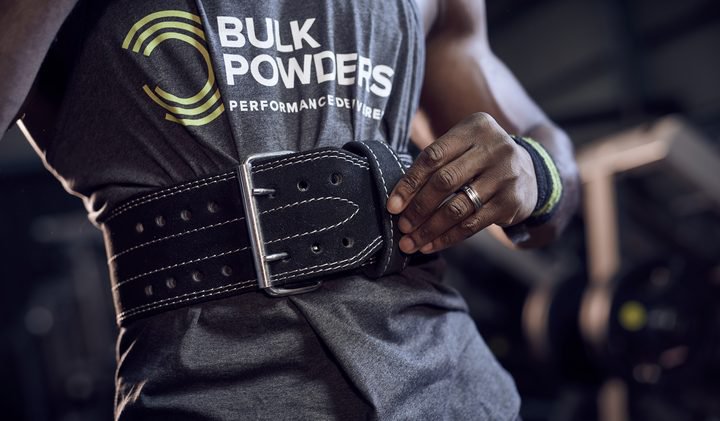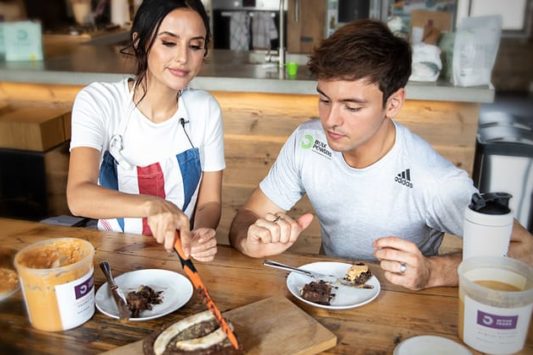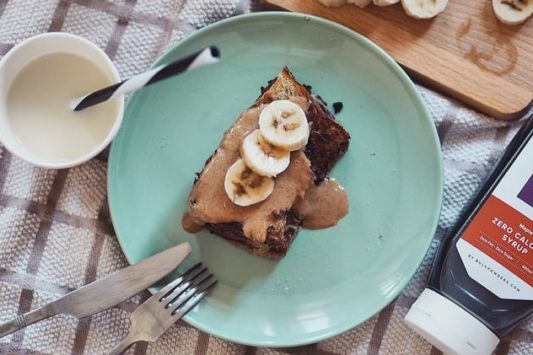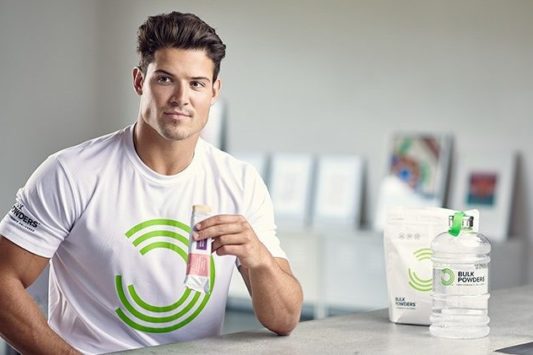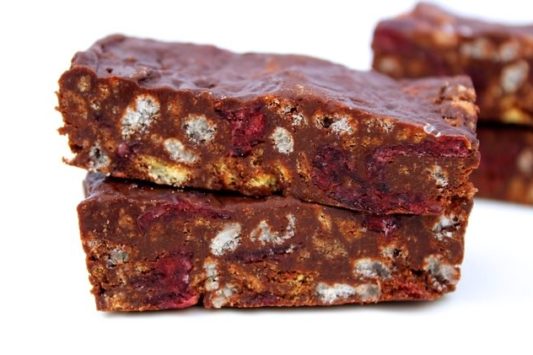One of the biggest myths surrounding the vegan lifestyle is that it is impossible to build decent amounts of muscle. Although in some regards it might be more challenging, it is entirely possible to grow muscle as long as you follow the same rules as those who have a more conventional dietary approach to building muscle… but what are those ‘rules’?
Here we have outlined 5 key rules to support muscle growth that are applicable to anyone who wants to bodybuild, alongside the specific considerations that vegans need to take into account to truly maximise their muscle growth.
RULE NUMBER ONE: CONSUME ENOUGH PROTEIN1.
For muscle building you want to be aiming to consume around 1g of protein per lb, or 2g per kg, of bodyweight. When we consider that most vegan foods are quite low in protein per 100g, then you need to make your food choices at each meal include some of the more high protein foods in this category to ensure that protein targets are hit.
Nuts and seeds often have relatively high protein contents. For example, nut butters and chia seeds contain around 20-30g of protein per 100g. There are several types of beans that are also pretty high in protein, for example kidney beans contain 14g of protein per 100g. The grain quinoa also falls into this category, with around 13g of protein per 100g.
Meat substitutes such as tofu, soya, mycoprotein and seitan are also effective ways to boost protein intake. These tend to have protein in amounts of around 15-30g per 100g and also are lower in calories than nuts, seeds and beans relative to their protein content.
RULE NUMBER TWO: PROVIDE THE BODY WITH ALL THE ESSENTIAL AMINO ACIDS2.
One thing we need to be aware of to maximise muscle growth, and even potentially fully protect against muscle loss when dieting, is to provide the body with all the essential amino acids it requires at each meal. Eating enough protein should be your first goal, but second should be to provide all the essential amino acids because the body requires all of these to maximally stimulate and sustain a process called muscle protein synthesis (MPS), which as the name suggests allows for the creation of new muscle.
Plant sources of protein that contain all the essential amino acids include soy, chia and quinoa. We can also combine different plant sources of protein that have different, but incomplete, amino acid profiles to make sure we tick all our amino acids boxes.
Classic combinations include humus and pitta bread, rice and peas, peanut butter on wholegrain bread and Ezekiel Bread… which contains several different wholegrains and seeds. Spirulina powder (derived from algae) is also an ‘almost’ complete amino acid source but this is easily rectified by combining it with grains, nuts and seeds… it does however contain all our essential amino acids including plenty of the branch chain amino acid leucine.
Leucine is especially important because it is the nutritional ‘trigger’ of MPS and even complete plant sources of protein tend to have lower than optimal amounts of leucine to maximise our protein synthesis response. However, we don’t have to miss out on maximising this response because we can simply supplement our meals with vegan friendly branched chain amino acids that can ‘top up’ our leucine to meet the ideal requirement of around 2-3g with each meal.
RULE NUMBER THREE: CONSUME PROTEIN EVERY 3-5 HOURS1,3.
If you are serious about building muscle then you want to try to do everything possible to maximise your results and this includes making sure we stimulate MPS at every opportunity. The best way to do this… take your total daily protein requirements and divide it fairly evenly into 4-6 portions that you consume every 4-5 hours.
The reason this may help maximise muscle growth is that MPS is only elevated after a meal that stimulates this process for a period of around 3 hours. At this point MPS rates start to fall, but in case you think eating any sooner might help sustain this process, MPS needs to ‘reset’ before we can trigger it maximally again, hence the recommendation of eating every 4-5 hours.
Doing this consistently can be time consuming, especially if having to combine different plant sources to provide you with all the essential amino acids. For convenience, like with anyone trying to eat a high protein diet, at times we might need to include some supplements to hit our daily needs. Vegan protein powders and protein bars can be an easy way to ensure all your amino acid needs are met and are also great in and around training to take with you to the gym.
RULE NUMBER FOUR: CONSUME PROTEIN BEFORE AND AFTER TRAINING4.
Training in itself triggers MPS pathways that then require amino acids from the protein we eat to support muscle growth. When we lift weights and provide amino acids in sufficient amounts we get a synergistic effect on MPS that leads to potentially increased rates of muscle growth.
Although MPS is elevated as a response to training for several hours, there is probably no more efficient time to take on protein in the periods around your training when your body is primed to use amino acids to support muscle growth.
This doesn’t have to be immediately before or after workouts, but a high protein meal an hour or so before and after training will make sure that the body has all the tools it needs to do promote muscle growth at key times.
RULE NUMBER FIVE: PROVIDE THE RIGHT AMOUNT OF ENERGY TO SUPPORT YOUR GOAL.
Eating enough calories for vegans to support muscle growth shouldn’t be too much of an issue as many of the whole food plant sources of protein we have mentioned here are also pretty high in calories. That being said, eating enough protein from these whole food sources can be challenging for some people as they are very filling, so vegan mass gainers may be of help for those who struggle to eat enough whole foods.
One potential problem for vegan bodybuilders can actually be maintaining a leaner physique, or trying to lose body fat whilst hitting protein requirements, as many of the high protein whole foods listed here are high in calories. This is where (typically) lower calorie meat substitutes come into play and for many vegan bodybuilders protein powder supplements such as soy, pea, rice and other plant protein ‘isolates’ are essential because they have a much lower calorie content whilst contributing significantly to daily total protein requirements.
In summary, the ‘rules’ to be a vegan bodybuilder are the same as non-vegans. It might not be as convenient or easy to follow these rules as for those who can consume complete, lean proteins, but it is completely achievable with a bit of thought, planning and preparation and the addition of a few potentially helpful supplements.
